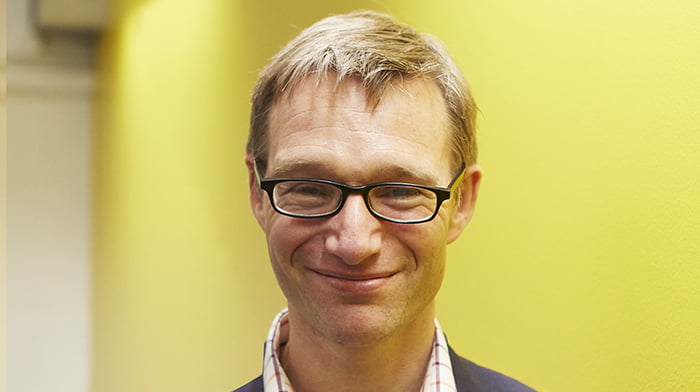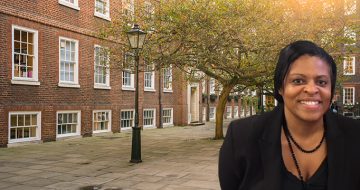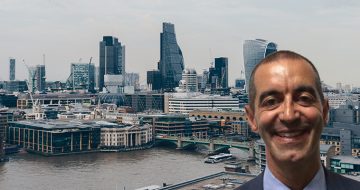Ahead of Legal Cheek’s ‘Secrets to Success – media and sports law’ event tomorrow evening, ULaw associate professor Peter Goodchild looks back on a career that began as an IP and IT lawyer in the City

When ULaw associate professor Peter Goodchild began his career at Slaughter and May in the 1990s, information and technology (IT) law was “very niche and the internet was embryonic.”
Today the picture couldn’t be more different. Indeed, such has been the infiltration of tech into our lives that the law governing it is creaking under the burden. There has also been a blurring of lines, with the coming together of media and technology reflected in the confluence of some legal practice areas.
Goodchild cites the controversial Copyright Directive that was recently rejected by the European Parliament due to the onerous responsibility it would have placed upon individual providers to check for infringements. Following this defeating vote, the Directive is to be redrafted and will face another vote this September. This process will likely involve a discussion of how to preserve internet freedom, while also protecting copyright holders. Importantly, the Directive’s initial rejection exemplifies the difficulty of bringing traditional copyright law into the digital age.
There is a similar story of the law struggling to keep up with social media.
“The traditional world of rules and practitioners are adjusting to a world of democratised information — the two don’t match,” says Goodchild. “So it will take time for the law and lawyers to adjust and to create a set of viable rules for social media.”
He predicts that rules surrounding breach of copyright and defamation “will need to be refreshed so as to make it less problematic”. But Goodchild still sees the law as having a central role to play — particularly in policing the social media companies. He continues: “Importantly, there needs to be a viable avenue for holding accountable those who provide the platforms to individuals who then infringe.”
For students interested in this area, the route in is often more complex than that into specialisms like corporate law. Despite the omnipresence of media — social and otherwise — in our lives, this continues to be considered a specialty form of practice. That means going into it directly via a training contract can be tricky.
Goodchild suggests following a similar path to him, advising budding media lawyers to first secure a “training contract in the right kind of firm” that will train you in, among other things, IP and commercial law — “two areas which are difficult to understand without the other”. This foundational understanding “will then prepare you to make a switch to media and sports law at a later date”. Thorough research at the training contract application stage is key to identify the handful of law firms with substantial trainee intakes that have strong IP and commercial law departments.
Goodchild also emphasises the value in getting any experience — commercial, legal or otherwise — within media or related fields like sports. “While there is a limit to what you can do in one lifetime, it helps to present yourself as someone having both legal and non-legal experience. Although I recognise that this is not a luxury many students have,” he says.
An aptitude for black letter law is also important in this often complex and nuanced field. Goodchild adds: “The students that do stand out possess a fundamental competence with the law and have a ready understanding of how to articulate such competence.”
He is in a good position to assess this, having taught students for 18 years in a career that has taken him to programme and student lead for the graduate LLB at ULaw. Among other responsibilities, he designs courseware and assessments, and teaches on the LLB, Graduate Diploma in Law and Legal Practice Course. He has been an external examiner for Southampton Solent University and writes courses and textbooks for the CILEx Law School.
Looking ahead, Goodchild predicts that the growing lawtech revolution will have an impact on media law. Expect the “automation of legal services to be applied to mass copyright infringement and other IP claims” he says. But in this fast-moving area, where high-level legal skills and industry expertise will always carry a premium, there will always be a role for the human expert.
Peter Goodchild will be speaking at ‘Secrets to Success — media and sports law’ with 5RB, Howard Kennedy, RPC and Wiggin at ULaw’s Bloomsbury campus tomorrow evening. Apply now for one of the final few places to attend.


